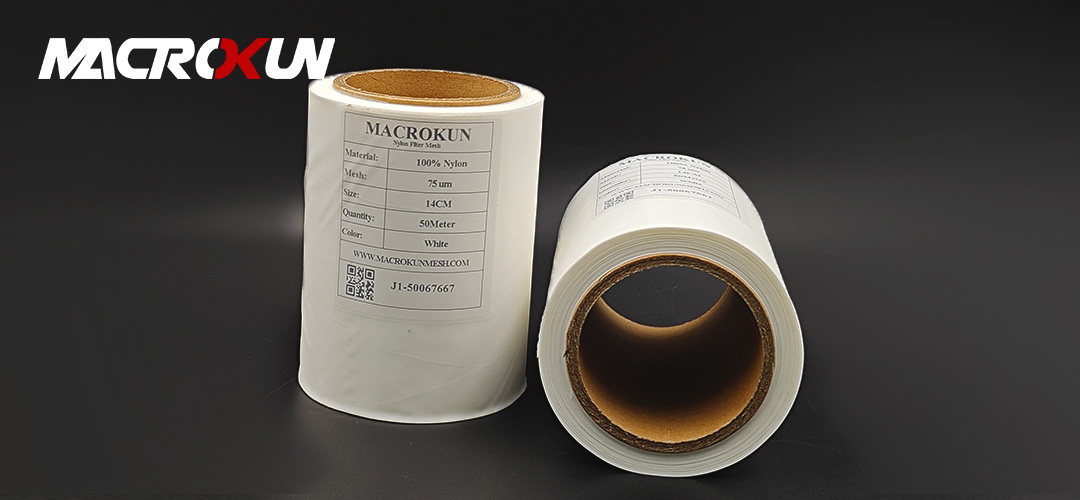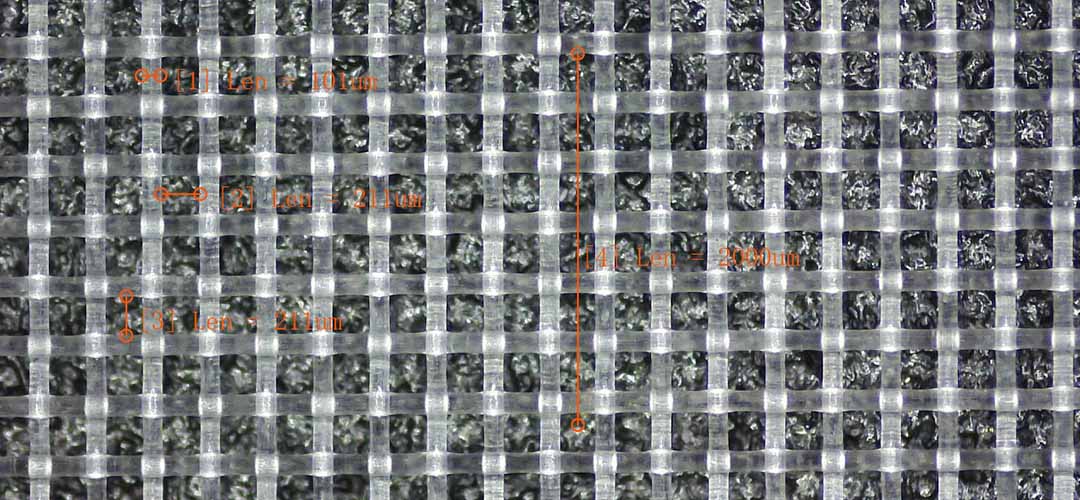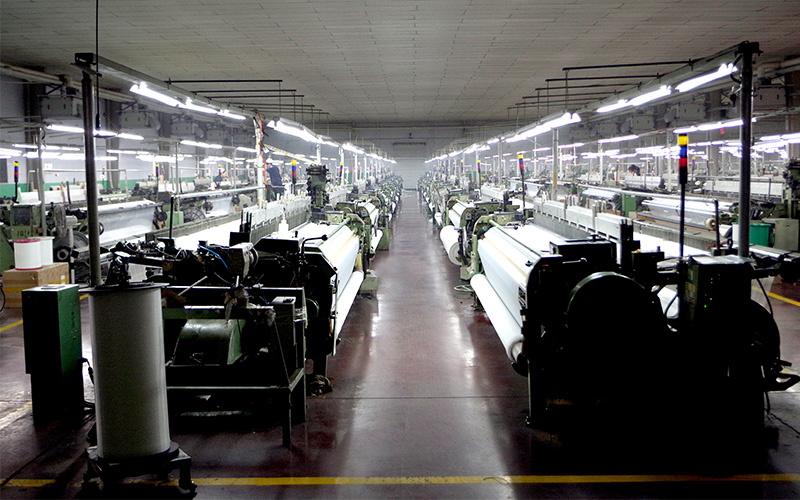25 micron nylon mesh fabric is a versatile material that is commonly used in advanced filtration systems. This type of fabric is known for its durability, flexibility, and ability to effectively filter out particles as small as 25 microns in size. In this article, we will explore the benefits of using 25 micron nylon mesh fabric in filtration systems.
One of the key benefits of using 25 micron nylon mesh fabric in filtration systems is its high level of filtration efficiency. This type of fabric is able to capture particles as small as 25 microns in size, making it ideal for applications where fine filtration is required. Whether you are filtering water, air, or other substances, 25 micron nylon mesh fabric can help ensure that only clean, purified substances pass through the filtration system.
In addition to its high level of filtration efficiency, 25 micron nylon mesh fabric is also known for its durability. This type of fabric is made from high-quality nylon material that is resistant to tears, punctures, and abrasions. This means that 25 micron nylon mesh fabric can withstand the rigors of continuous use in filtration systems without losing its effectiveness. Its durability also makes it a cost-effective option for filtration systems, as it can last for an extended period of time without needing to be replaced.

Another benefit of using 25 micron nylon mesh fabric in filtration systems is its flexibility. This type of fabric can be easily cut, shaped, and molded to fit a wide range of filtration system designs. Whether you need a flat sheet of fabric for a simple filtration system or a more complex shape for a custom-designed filtration system, 25 micron nylon mesh fabric can be easily manipulated to meet your specific needs. Its flexibility also makes it easy to install and maintain, saving time and effort during the filtration system setup process.
Furthermore, 25 micron nylon mesh fabric is easy to clean and maintain. This type of fabric can be washed, rinsed, and dried quickly and easily, allowing for efficient maintenance of the filtration system. Regular cleaning of the fabric can help ensure that it continues to perform at its best, providing consistent filtration results over time. Additionally, 25 micron nylon mesh fabric is resistant to mold, mildew, and bacteria growth, making it a hygienic option for filtration systems that require clean, purified substances.
In conclusion, 25 micron nylon mesh fabric offers a range of benefits for advanced filtration systems. From its high level of filtration efficiency to its durability, flexibility, and ease of maintenance, this type of fabric is a reliable and cost-effective option for a wide range of filtration applications. Whether you are filtering water, air, or other substances, 25 micron nylon mesh fabric can help ensure that your filtration system operates at its best. Consider using 25 micron nylon mesh fabric in your next filtration system project to experience the benefits firsthand.
25 micron nylon mesh fabric is a versatile material that is commonly used in advanced filtration systems across various industries. Its fine mesh structure allows for precise filtration of particles as small as 25 microns, making it an ideal choice for applications where high levels of filtration efficiency are required.
One of the key applications of 25 micron nylon mesh fabric is in industrial filtration systems. These systems are used in a wide range of industries, including pharmaceuticals, food and beverage, automotive, and electronics, to remove impurities and contaminants from liquids and gases. The use of 25 micron nylon mesh fabric in these systems ensures that only particles of a certain size are allowed to pass through, resulting in cleaner and purer end products.
In the pharmaceutical industry, 25 micron nylon mesh fabric is used in filtration systems to remove bacteria, viruses, and other contaminants from liquids such as drugs and vaccines. The fine mesh structure of the fabric ensures that only particles larger than 25 microns are filtered out, while allowing the desired components to pass through. This helps to ensure the safety and efficacy of pharmaceutical products, protecting both patients and manufacturers from potential harm.
Similarly, in the food and beverage industry, 25 micron nylon mesh fabric is used to filter out impurities and contaminants from liquids such as juices, wines, and dairy products. By using this fabric in filtration systems, manufacturers can ensure that their products meet strict quality and safety standards, while also improving the overall taste and appearance of the final product.

In the automotive industry, 25 micron nylon mesh fabric is used in oil and fuel filtration systems to remove dirt, debris, and other contaminants from engine fluids. By using this fabric in filtration systems, manufacturers can extend the life of their engines and improve overall performance, while also reducing the risk of costly repairs and maintenance.

In the electronics industry, 25 micron nylon mesh fabric is used in air and liquid filtration systems to remove dust, dirt, and other particles that can damage sensitive electronic components. By using this fabric in filtration systems, manufacturers can ensure the reliability and longevity of their products, while also improving overall performance and efficiency.
Overall, the use of 25 micron nylon mesh fabric in industrial filtration systems offers a wide range of benefits, including improved product quality, increased efficiency, and reduced maintenance costs. Its fine mesh structure and high filtration efficiency make it an ideal choice for applications where precision and reliability are paramount. Whether in pharmaceuticals, food and beverage, automotive, or electronics, 25 micron nylon mesh fabric is a versatile material that is sure to deliver exceptional results.
25 Micron Nylon Mesh Fabric: Designed for Advanced Filtration Systems
When it comes to advanced filtration systems, 25 micron nylon mesh fabric filters are a popular choice. These filters are designed to effectively remove particles as small as 25 microns, making them ideal for applications that require a high level of filtration. However, like any filter, proper maintenance and cleaning are essential to ensure optimal performance and longevity.
One of the first steps in maintaining 25 micron nylon mesh fabric filters is regular inspection. It is important to visually inspect the filter for any signs of damage or wear. This can include tears, holes, or fraying of the mesh fabric. If any damage is detected, it is crucial to replace the filter immediately to prevent any contaminants from bypassing the filtration system.
In addition to visual inspection, it is also important to regularly clean the 25 micron nylon mesh fabric filters. Over time, particles and debris can accumulate on the surface of the filter, reducing its effectiveness. Cleaning the filter can help restore its filtration efficiency and prolong its lifespan.
To clean a 25 micron nylon mesh fabric filter, start by removing it from the filtration system. Gently tap the filter against a hard surface to dislodge any loose particles. This can help remove larger debris that may be trapped in the mesh fabric. Be careful not to apply too much force, as this can cause further damage to the filter.
Once any loose particles have been removed, the next step is to rinse the filter with clean water. This can be done by gently spraying water onto the surface of the filter or by soaking it in a container filled with water. The water should be at a moderate temperature, neither too hot nor too cold, to avoid damaging the filter.
While rinsing the filter, it is important to pay attention to any areas that may be particularly dirty or clogged. These areas may require additional cleaning to ensure that the filter is thoroughly cleaned. A soft brush or sponge can be used to gently scrub these areas, being careful not to apply too much pressure that could damage the mesh fabric.
After rinsing and cleaning the filter, it is important to allow it to dry completely before reinstalling it in the filtration system. Damp filters can promote the growth of mold and bacteria, which can compromise the filtration efficiency and pose a health risk. To speed up the drying process, the filter can be gently shaken or patted dry with a clean cloth.
In conclusion, proper maintenance and cleaning are essential for 25 micron nylon mesh fabric filters to ensure optimal performance and longevity. Regular inspection, cleaning, and drying are key steps in maintaining these filters. By following these guidelines, users can ensure that their advanced filtration systems continue to operate at their best, providing clean and purified air or liquid.
Pre: How Nylon Filter Mesh Enhances Filtration Efficiency Across Industries
Next: High-Quality Filtration with 100 Micron Nylon Filter Cloth

MACROKUN has established long-term and stable cooperative relations with many transportation companies such as China Post, DHL, FEDEX, USPS, UPS, etc. Of course, MACROKUN can also provide air and sea transportation. The powerful logistics system enables all MACROKUN'S Printing Mesh, Filter Mesh and Filter Bags and so on to be easily and efficiently transported to any place. For quotes and inquiries, please email our sales team.





